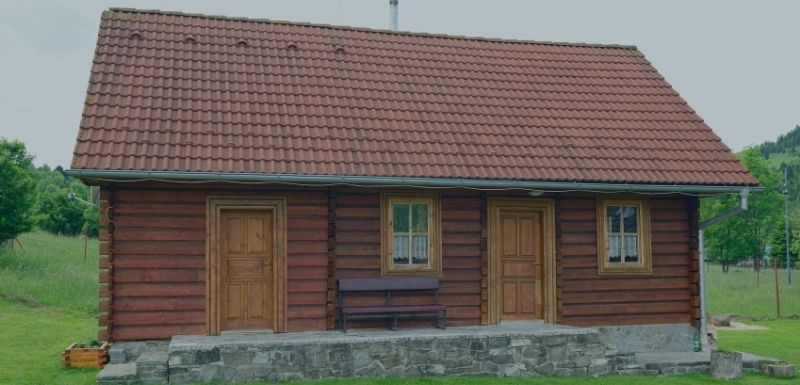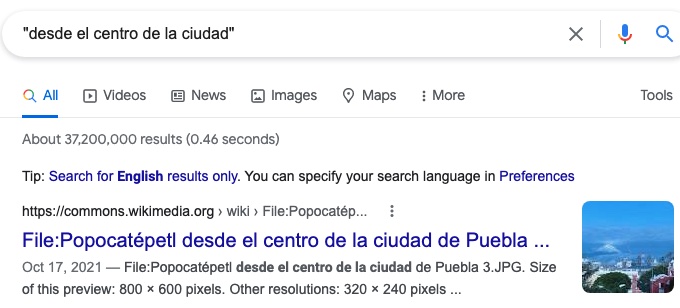Desde and de can be a confusing pair — even for native speakers of Spanish. In many cases, the two prepositions can be used interchangeably.
Let’s take a look at the differences between desde vs. de, and the best way to say “From” in Spanish depending on the situation.
When to use desde vs de
A good rule of thumb is this: desde generally implies a sense of motion. Both de and desde can be used to say “from”, but desde is the right choice when you want to communicate or emphasize distance or duration.
For example:
| Paulina viene de Panamá = Paulina is from Panama (she was born there) | Paulina viene desde Panamá = Paulina is coming (all the way) from Panama (to meet us on this trip) |
| Ropa de China = Clothing from China | Ropa desde China = Clothing (that is coming) from China |
| Viajé de Los Ángeles a Sydney = I traveled from Los Angeles to Sydney | Viajé desde Los Ángeles hasta Sydney = I traveled (all the way) from Los Angeles to Sydney (and it was a long trip) |
Let’s take a closer look at some specific scenarios where you’ll use these two prepositions.
Desde + hasta to talk about a time period
Desde 2000 hasta 2008, George Bush fue presidente de los Estados Unidos
- From 2000 until 2008, George Bush was president of the United States
Desde el 8 de mayo hasta ahora, no he podido dormir en casa
- From May 8th until now, I haven’t been able to sleep at home
In these examples, note that ‘desde’ goes with ‘hasta’. Below, you’ll see similar examples with the preposition ‘de’, which is accompanied by ‘a’ rather than ‘hasta‘.
When expressing motion or distance, or emphasizing a starting point
Vengo desde el D.F. así que me demoré 4 horas en llegar
- I came (all the way from) Mexico City so it took me 4 hours to get here
La carretera panamericana va desde la patagonia argentina hasta el norte de Alaska
- The Panamerican highway goes from Argentinean Patagonia to northern Alaska
As a starting place
Desde tu casa hasta la mía son 2 kilómetros
- It’s 2 kilometers from your house to mine
Desde la cima, puedes ver una vista increíble
- From the summit you can see an incredible view
To talk about a starting amount (of money, etc.)
Casas nuevas desde $300,000
- New homes starting at $300,000
Mañana desde la una de la tarde habrá comida para todos
- Tomorrow starting at 1pm there will be food for everyone
💡 You might also like: How to Memorize Spanish Words: Instantly Improve Your Recall
When to use de
The preposition de is used in lots of contexts in Spanish. These include situations where de means of, from, by, and made of.
Let’s take a look at some examples of de in context.
De + a to talk about distance or time
El viaje de Santiago a Buenos Aires en avión dura sólo un par de horas
- The trip from Santiago to Buenos Aires by plane only takes a couple hours
Estamos abiertos de lunes a viernes
- We are open from Monday to Friday
Note: with de, use the preposition a. With desde, use hasta. E.g., De Quito a Guayaquil and Desde Quito hasta Guayaquil.

To talk about possession
El reloj es de mi abuelo
- The watch is my grandfather’s
La casa amarilla es de mis tíos
- The yellow house is my aunt’s and uncle’s
To talk where someone or something is from
El café es de Colombia
- The coffee is from Colombia
Mi tatarabuelo era de Finlandia
- My great-great-grandfather was from Finland
To describe what something is made out of, or its contents
¿Quieres un jugo de naranja?
- Do you want an orange juice (literally, “juice of oranges”)
Es una casa de madera
- It’s a wooden house (a house [made of] wood)

As you can see, there are situations where de and desde are interchangeable, but can imply something different.
This is similar to ¿cómo estás? and ¿cómo eres?, which both technically mean “how are you”, but have very different real meanings.
Common expressions with “desde”
Take a look at desde in context below and you’ll start to get a better feel for how it’s used in Spanish.
Desde hace – Since / for X amount of time
Desde hace 2 meses mi auto no enciende
- For 2 months/since 2 months ago my car won’t turn on
Comencé un nuevo trabajo desde hace poco
- I started a new job not long ago/recently
¡No te veo desde hace mucho tiempo!
- I haven’t seen you in a long time!
Desde siempre – Since forever
Quiero ir a Japón desde siempre
- I’ve always wanted to go to Japan
Desde ahora/ya — From now on/starting now
Desde ahora/desde ya no bebo más
- I’m not drinking anymore starting now
¿Desde cuándo? — Since when?
¿Desde cuándo vives acá?
- Since when do you live here/ how long have you been living here?
Desde cero — From scratch
Se me borró todo así que tuve que comenzar desde cero
- Everything got deleted on me so I had to start from zero/scratch
Desde el momento en que — From the moment when
Desde el momento en que salimos de vacaciones, he estado muy relajado
- Since the moment we left for vacation, I’ve been very relaxed
Trabajar desde casa — Work from home
Desde el 2020, mucha gente trabaja desde casa
- Since 2020, many people work from home

Common expressions with “de”
De is one of the most common words in Spanish. It’s used in thousands of expressions, but here we are just looking at a few common ones.
¿De dónde?
¿De dónde salió el avión?
- Where did the plane leave from?
¿De verdad? – Really(?)
No había arroz en el supermercado! – ¿De verdad?
- There was no rice at the grocery store! – Really?
De verdad, no lo creía tampoco pero es así
- Seriously, I didn’t believe it either but that’s the way it is
Por causa de / a causa de
Por causa del partido, hay mucho tráfico en el centro
- Because of/due to the game, there is a lot of traffic downtown
A comienzos de / A principios de
El año escolar comienza a principios de septiembre
- The school year starts at the beginning of September
A favor de
Estoy a favor de la propuesta del alcalde
- I’m in favor of the mayor’s proposal
A partir de
A partir de agosto empezaré las clases de español
- Starting in August I’ll start Spanish classes
De aquí en adelante — from here on out
De aquí en adelante, no saldrás sin el permiso de tus papás
- From here on out, you won’t go out without your parents’ permission
De alguna manera/forma — Somehow/in some way
De alguna manera, saldremos adelante
- We’ll move forward somehow
De and Desde will make more sense to you over time
Focus on getting tons of comprehensible input in Spanish. The more exposure you have to real Spanish in context, the more you will develop a natural sense for which of these two prepositions is the right choice in a given situation.
In the meantime, the best way to cement what you’ve learned in this article is to create your own sentences using them. For quick feedback, you can check them in Deepl online translator, or copy+paste your sentences in quotations in Google and see what results appear.




Thank you I’m very happy about this Lesson